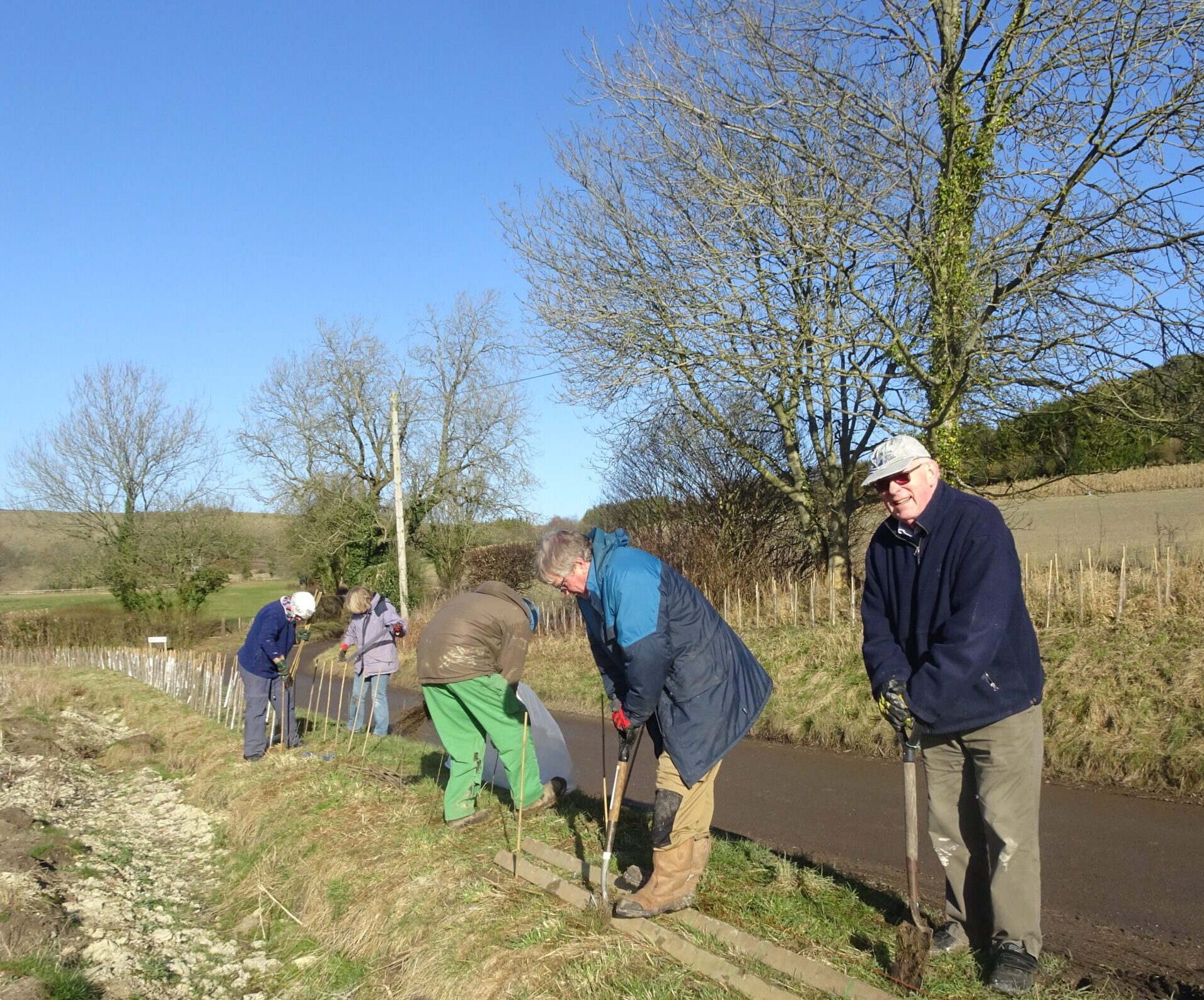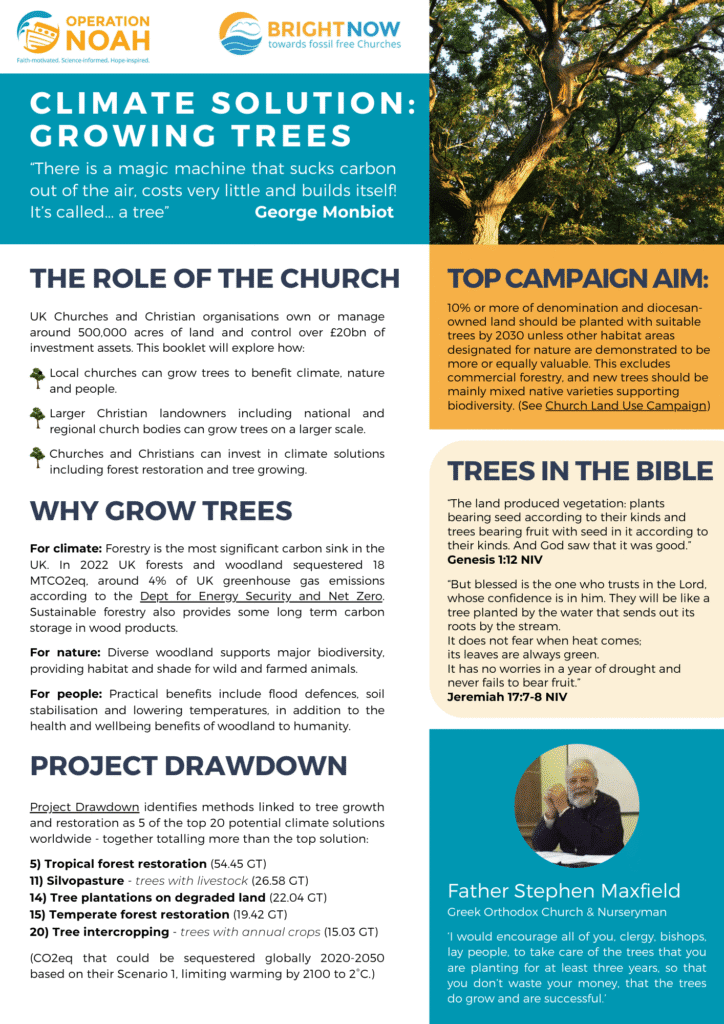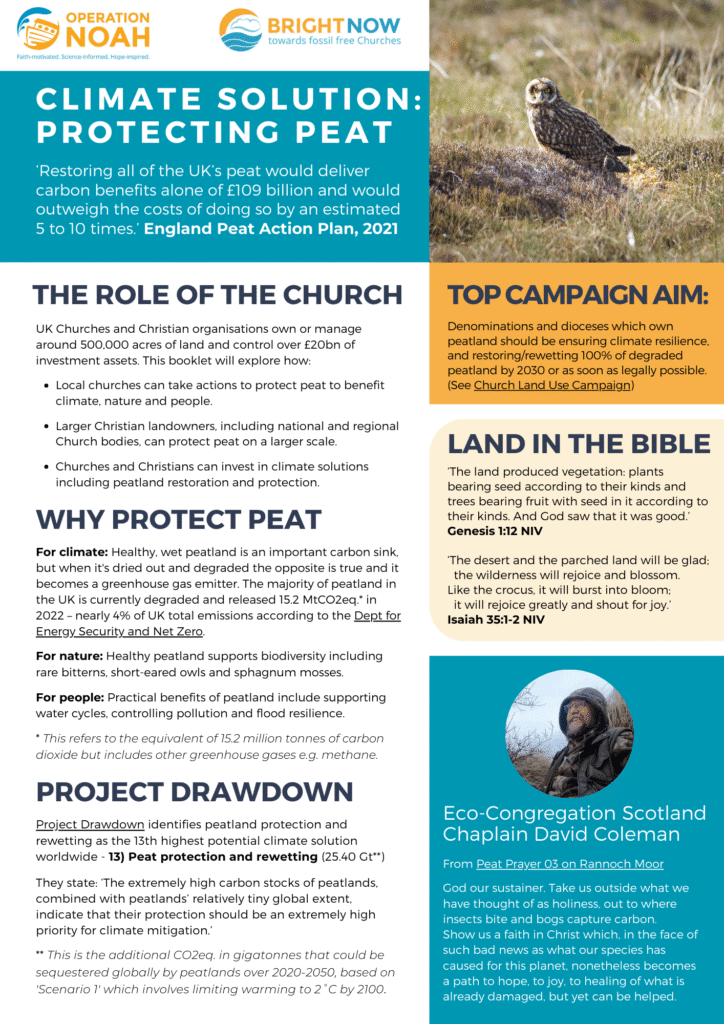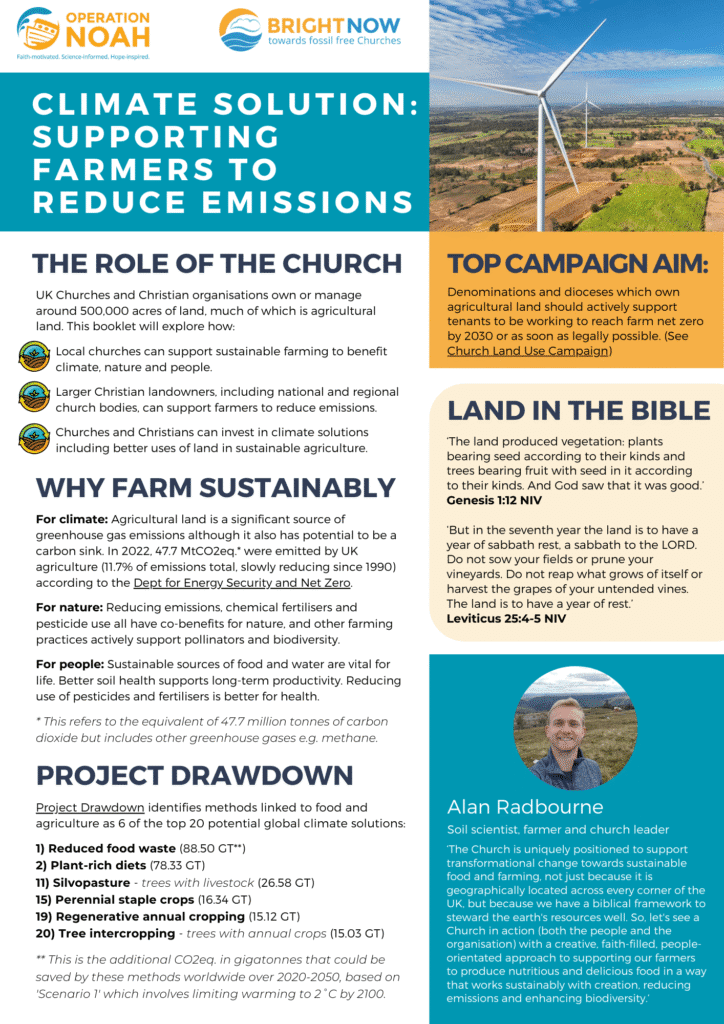Should churches treat the land under their control differently? Does our hope in Jesus lead us to show greater love and care for God’s world?
At Operation Noah we believe so, and we’re hugely encouraged by the many stories we hear of projects around the country using land, some of which is church owned, to benefit nature and adapt to – and mitigate against – climate change.
Over the past four months, we’ve showcased some of these stories by inviting the inspirational people behind them to share in a series of three webinars. These webinars have been recorded, and the resulting videos each look at a different route to bringing about change: firstly at a local, then landscape, then finally national level. Each video also picks up on our key recommendations for church land, namely growing trees, protecting peatland, and supporting farmers to reduce emissions.
Our first video starts at a local level, presenting actions which individuals and local church groups can support. Revd Mike Saunders describes what started as a local church group from St Lawrence’s Hungerford planting trees at a nearby school but which has expanded to plant over 7000 trees with support from the Woodland Trust and local landowners. Jaye Brighton introduces the Loveland project in Falmouth which is a community group which grows food on Diocese of Truro land as well as providing a grocery service and cooking meals for those who need them. Thirdly Revd David Coleman from Eco Congregation Scotland takes us to the peatlands in Scotland and makes the case that these are holy ground.
The second video explores what church landowners can do at landscape level, where they own larger areas of land. Hannah Jones from Farm Carbon Toolkit describes how farmland can sequester carbon, and shares some examples from farmers in Cornwall. Simon Gibson from Lee Abbey discusses their project to restore Atlantic rainforest by replanting native trees on their site. Rhys Evans from Nature Friendly Farming Network presents a raft of climate measures implemented by a group of ten farmers in Wales, including peatland restoration and new water storage ponds.
The third and newest video explores what church investors can do to support sustainable land use through their investments. Caroline Pomeroy from Climate Stewards and Prosper Kwame Antwi from A Rocha Ghana describe their model where climate offsets from organisations, churches and individuals can fund projects such as tree growing in Ghana and the multiple benefits for local communities. Rolf Hogan from Landscape Finance Lab makes a strong case for the importance of investing in peatlands and introduces some varied schemes which make this possible. John Weakliam from Vita Impact introduces another model for impact investment, supporting community transformation examples from East Africa.
A wide range of case studies from local, regional and investment level projects including many of the webinar speakers are also included in our 4 page resources on Growing Trees, Protecting Peatland and Supporting Farmers to Reduce Emissions. Please share these with your congregations, church land managers and financial decision-makers to increase awareness and participation in these vital areas for climate and nature. Click on the snapshots to download, or use the buttons to access all our resources on each topic.



